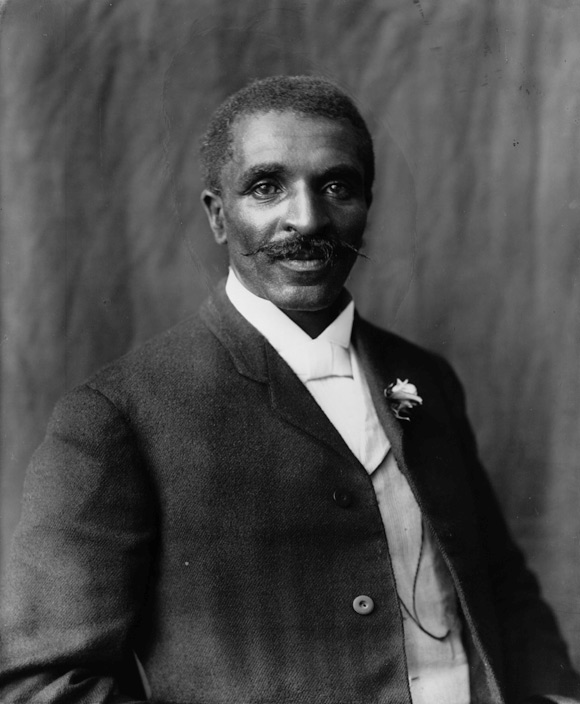George Washington Carver Exhibit At Henry Ford Museum Highlights Sustainable Inventor
Written by Vegetarian Star on Tuesday, November 2nd, 2010 in Environment-Eco-Green, Farming, Food & Drink.

George Washington Carver
From now until February 27th, 2011, the Henry Ford Museum in Dearborn, Michigan will feature an exhibit chronicling the life of what may be one of the first black champions of sustainable farming and most definitely a pioneer for inventors, farmers and conservationists of all races.
According to USA Today, George Washington Carver believed, “nature produces no waste” and neither should humans. He invented hundreds of uses for the peanut, sweet potato and soy bean, using much of what he already had, making instruments from pieces of worn equipment from other tools.
Here are a few ways in which Mr. Carver, the first black American to attend Iowa State Agricultural College, which is now Iowa State University, exemplified sustainable farming, upcycling and using local labor and resources.
Soil Conservation: When the Deep South faced eroding soil from growing cotton, Carver suggested alternative crops of peanuts and soybeans one year and then cotton the next, a method that helped restore nitrogen to the soil.
Possibly Related Posts:
- Chrissy Teigen Failed Vegan Experiment
- Mia Evans Is A “Masterchef Junior” Vegetarian Star
- Holly Madison Enjoys Vegan Smoothie From M Cafe In Beverly Hills
- Controversy Over Pro-Vegeterian Curriculum In Schools
- Ellie Goulding Creates Protein Bar “Everlasting Joy” With GoMacro

